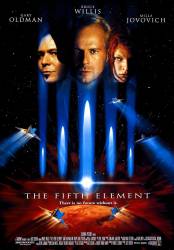
Question: Does anyone know who does the voice of Korben Dallas' mother?
Answer: Haviland Morris.
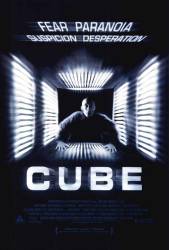
Question: How did Quentin find others in the last scene? he was left unconscious and he had no way to figure out where others went after that (considering his lack of knowledge in mathematics) so how could he possibly make his way to the bridge room?
Answer: It's established that sound travels throughout the structure reasonably well. Also, they didn't travel relatively far, even with the rooms shifting.
Actually, considering the distance that they travelled and the injuries he sustained, Quentin would have had extreme difficulty catching up. It looks like the 3 travelled upwards at least 12 cubes, meaning Quentin would have had to climb up each one with the chance that any of the rooms could be trapped fast enough to catch up to them with enough strength left over to kill Leaven.
Adrenaline is an extremely driving force, so I'd still consider it entirely possible it happened that way.
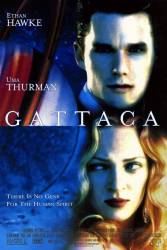
Question: In the scene where Vincent is just about to launch, the doctor testing him mentions his son. My brother seems to think that the doctor knows Vincent is not who he pretends to be because he is Jerome Morrow's father. Is there any evidence for this?
Answer: None whatsoever. The doctor seems to have worked out that Vincent is not who he seems to be from simple observational evidence. It's because of his son that he feels sympathy for Vincent and hasn't revealed that he's tricking the system.
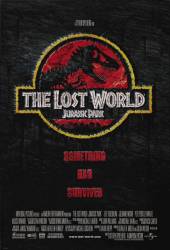
Question: Malcolm asks Roland why he'd kill a T-Rex. Roland proceeds to tell a story about a guy that went up a mountain and came back barely alive, and when asked 'did he go up there to die', responded 'no, he went up there to live'. I sort of get the point of the story, but could somebody clarify it for me?
Answer: It's basically about facing one's own mortality. Many humans feel that they 'feel the most alive' when facing (and overcoming) dangerous situations, the more challenging, the better. Roland is a big game hunter, to him, the ultimate challenge would be to hunt the biggest and (presumably) most dangerous predator ever to exist. Facing the danger of the T. Rex would make him feel better and mightier than he had ever felt in his life.
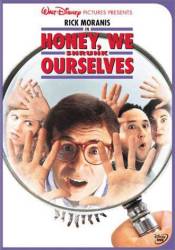
Question: Near the beginning, what does Wayne mean when he says "Nothing like the smell of 2-part apoxy resin"?
Answer: Epoxy resin is sometimes sold in two seperate tubes. You have to mix the contents of both for the epoxy to harden into plastic. It also shows how weird he is, as epoxy tends to smell pretty foul.
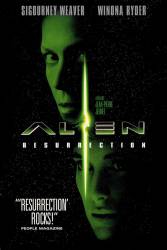
Question: Why was Ripley cloned?
Answer: In Alien 3, Ripley discovers there was an Alien queen embryo growing inside her, so she chose to kill herself. By cloning her, scientist were hoping the Alien queen embryo she had in her at the time of her death would also become cloned, which finally happen after the 8th try. This is also why the Alien queen they extracted from Ripley has some human traits.
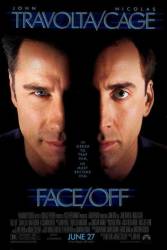
Question: Why did Castor shoot Dietrich? They were on the same side.
Chosen answer: Although they were on the same side, Troy is currently posing as Archer, which means he would have to do everything that the FBI would expect Archer to be doing. The whole point of the raid was to take out Archer, as well as Troy's gang. He would have rather risked killing part of his own gang than risk exposing his identity to anyone else.
That doesn't really make sense. In the scene, he goes out of his way to shoot him and smiles while doing so, carefully and slowly. Was not a collateral damage situation. The question is why he deliberately goes out of his way to kill him.
Answer: If you watch closely, he saw Archer, went out of his way not to shoot him, instead was aiming for his own son that he didn't know was his, to further traumatize Archer.
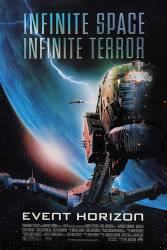
Question: Why did the Event Horizon choose to come back after seven years? In fact, why come back at all?
Chosen answer: The movie never explicitly says; but science is as yet unsure what happens to a given piece of matter once it crosses a black hole's event horizon, so who knows? The ship could have been thrown seven years forward in time, or far enough away that it took seven years for it to drift close to Neptune. Pick any explanation you like.
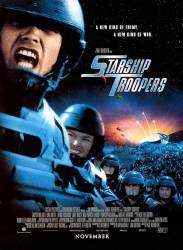
Question: What's going on with Rico and Carl in the card guessing scene? I originally thought Rico was trying to guess the value of the unturned card was but then he says it's the ace of spades and it turns out to be exactly that yet he still gets it wrong. Could someone please explain what's happening there?
Answer: The card face up is the one he's trying to guess. The card that flips over is his guess (you can see him hit a pad when he says "ace of spades".) So he is trying to use mental powers to guess the card that is face up (which he can't see as he has his back to it), and (presumably so the computer can track his results better) he makes his choice on a keypad, which then turns over the card on the screen (which is why the card is what he said, yet still wrong).
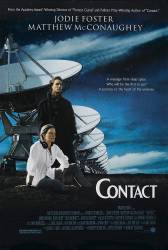
Question: If you read the book version of Contact you know that the stuff about transcendental numbers and the Artist's Signature was left out of the movie. This makes no sense to me, since it's not only the real ending, it's the whole POINT of the story. Without this information, the story's fundamental question (does God exist?) is not answered in the movie. Does anyone know why this was left out?
Answer: If anything, I think the film's producers deliberately left godly topics unaddressed (and questions dangling, unanswered) because they didn't want to alienate any particular audience. However, we know the producers of "Contact" certainly did vilify religion through the sinister scenes with Joseph, the evangelical extremist. At the same time, the film created empathy for the president's glib theological adviser, Palmer Joss. So, I don't think the film was shying away from religious topics, and I think it was pretty fair to the religious viewpoint, for the most part. But this movie wasn't about religion; it was about a primitive, materialistic, self-centered and aggressive species (humanity) reluctantly acknowledging the existence of vastly more intelligent and even godlike entities throughout the cosmos. Even the first-contact entities, advanced as they are, acknowledge other entities much more ancient and much more advanced (the virtual architects of the space/time conduit). The implication was that we live in a universe that may be populated with many intelligent entities that answer every human criteria of godhood. Ellie's narrow-minded atheism was surely shaken to its foundation by her experience; and, while she didn't "convert" to archaic earthly religions, she was spiritually a different person upon her return. The film, however, is open-ended and fence-straddling and doesn't presume to definitively answer the question of the existence of god, leaving it up to the audience to decide.
Answer: The film chooses to focus on Ellie's personal journey and how she deals with and comes to terms with what happens - it doesn't really involve God at all, other than the inclusion of Palmer Joss as a religious advocate, choosing to restrict itself to the much less theologically controversial theme of a straight first contact scenario, without the religious overtones. Given the depth of feeling on religious matters in the US, it's hardly surprising that the filmmakers preferred to leave this particular hot topic out. While Carl Sagan died during production of the film, he both co-produced and was involved in the story process, so he was clearly not concerned about this change.
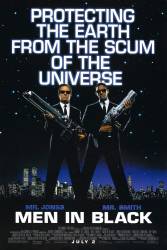
Question: When K and J are about to leave the police station, J says that he has a report to do. At that moment, his boss arrives and tells him he did a good report. Who did his report? It couldn't have been the MIB, because J was the only person who saw the entire chase.
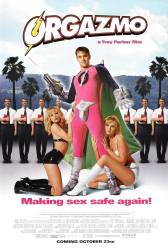
Question: Are "Happy Tarts" an actual product in America? They're displayed throughout the film as an obvious product placement joke, but is it a product made up for the benefit of the joke, or did the film makers make a real product placement into a joke?
Chosen answer: No, Happy Tarts is not a real product (unless you live in South Park where Cartman sometimes has them along with Cheesy Poofs and Snacky Cakes).
Answer: Jill Mullan.
Donald Jenkins